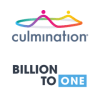CHICAGO — While Wall Street set low expectations leading up to the American Society of Clinical Oncology's annual meeting, investors in biotech and pharmaceutical companies mostly cheered clinical results presented at the conference over the past four days.
Unlike the past several ASCO meetings, this year's iteration lacked a stand-out immunotherapy dataset. Instead, it was updates on targeted cancer drugs that attracted the most attention, in particular initial findings from an early-stage study of an Amgen therapy aimed at KRAS, an oncogene long considered "undruggable."
Those results helped boost the market value of Mirati Therapeutics, a rival biotech developing a similar drug, by more than $1 billion — even though first results from its study aren't expected until later this year.
What was supposed to be a “down year” at ASCO has produced on of the best Monday morning stock reactions in recent memory. Love it.
— Brad Loncar (@bradloncar) June 3, 2019
Nektar Therapeutics also enjoyed a stock market lift. After enduring months of skepticism that its drug, NKTR-214, can pair well with Bristol-Myers Squibb's Opdivo, the biotech unveiled updated data that showed deepening responses to the two drugs together in previously untreated advanced melanoma.
Whether Bristol-Myers' expensive bet on Nektar's drug was warranted remains to be seen, but Nektar leaves ASCO in a better place than before.

Large drugmakers generally fared well, with AstraZeneca earning a spot in the conference's plenary session with results on its PARP inhibitor Lynparza in pancreatic cancer. Treatment with the drug resulted in a rare positive trial result in the tough-to-treat tumor type. A lack of a clear survival benefit, though, dampened enthusiasm somewhat.
Merck & Co. and Bristol-Myers usually use ASCO to showcase their immuno-oncology research but, for the first time since 2013, both companies skipped holding investor events at the meeting. Further follow-up in lung cancer and melanoma patients treated with their respective checkpoint inhibitors gave doctors a better sense of how long responses to immunotherapy could last.
Not all companies left Chicago with a stock market tailwind. Despite presenting data that oncologists found encouraging, both Blueprint Medicine, Turning Point Therapeutics and Macrogenics saw their share prices sink.
Blueprint's drug targets mutations in a gene called RET, and could challenge a rival compound developed by Loxo Oncology and now owned by Eli Lilly. Turning Point, meanwhile, is advancing a targeted therapy aimed at ROS1 mutations, and faces competitors in Roche, Pfizer and Bayer.
For Macrogenics, fuller results from its SOPHIA study of a HER2-targeting antibody called margetuximab raised questions about its relative efficacy versus Roche's Herceptin, leading to a a near 17% drop on Tuesday.














